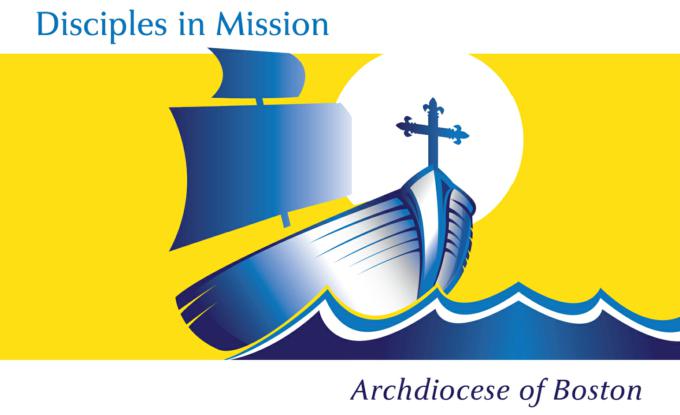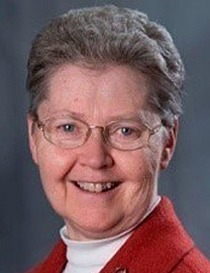
Faith
By the end of the workshop, many expressed an eagerness to take what they learned and heard in the different sessions back to their collaboratives.

CSJ
Phase Six pastors met recently at the Pastoral Center for their collaborative pastor workshop. The workshop was moved to the fall to give pastors a few months in their assignments to become familiar with their new way of life and have some experiences to reflect on as they move through the workshop. These meetings ran from 1:30 to 8 p.m. to provide time in the morning for funerals and other parish responsibilities. The schedule also helps those coming from any distance to avoid rush hour traffic.
The format and content of the sessions was redesigned in response to suggestions from pastors in earlier phases. The sessions, spread over three days, provided time for discussion and conversation about issues related to life as a pastor in a collaborative setting. These included key themes of Disciples in Mission: evangelization and discipleship, leadership in parishes at a time of transition, working with ethnic communities and forming a parish leadership team. This year there was a panel presentation by several different lay ecclesial ministers, people who are working in collaboratives who spoke about their roles in faith formation, pastoral ministry and finance.
On the first day of the orientation, the priests were first asked, "What has been most challenging?" Their responses to this question touched on real concerns. Several pastors spoke about the need for Mass schedule changes. These priests are not looking for a lighter schedule, but rather are seeking more time to be known and to get to know parishioners. Some expressed concerns about the role of the pastoral council. A few expressed concerns about the condition of their parish buildings. There are some pastors who feel they have staffs that grasp the importance of evangelization and its need, but there are also a few who have little or no staff. There are some who have parishes that have worked well before being formed into a collaborative and others that have not.
When asked, "What are you pleased with?" the responses were very positive. Pastors are feeling welcomed. In most collaboratives, parishioners seem open to new leadership and to possible new ways of doing things. That "we've always done it this way" isn't going to be the way forward. One pastor has been pleased with the response he has received to small neighborhood gatherings in parishioners' homes. He is using these gatherings to get to know parishioners and to listen to their hopes and concerns. Several pastors expressed that they feel good support from the Collaborative Support Team. A few pastors expressed eagerness about having a local pastoral plan as a means of assisting with evangelization efforts.
During one conversation with the pastors, Father Paul Soper asked, "In the midst of extreme business, what sustains you?" Their responses were honest and heart-felt. One said he felt backed by the archdiocese. Several mentioned the importance of priestly fraternity and support they experience at weekly dinners with priest friends. Priests stated that getting rest, eating well and having a good sense of humor keep them balanced. Some expressed being sustained by the Eucharist along with faithfulness to an hour of prayer each day. Some pastors are part of an Emmaus group or a monthly book club where they are with other priests who offer support and advice.
One new feature to the pastor workshop came in the form of a report that showed some early positive metrics in the collaboratives in phases one through four. Early indications on performance or trends in the collaboratives show that engagement in the Disciples in Mission process leads to stronger financial developments. This report sparked lots of discussion and questions among the pastors and presenters. Pastors were interested to know: what "engagement" looks like in a collaborative? How do we measure engagement? Are there any best practices that can be learned from those early positive signs?
By the end of the workshop, many expressed an eagerness to take what they learned and heard in the different sessions back to their collaboratives. However, if they are to become evangelizing parishes, these pastors will not only need a new sense of ardor and the courage to initiate new methods, they will need to be grounded in prayer, and supported by the prayer of all whom they serve.
Recent articles in the Faith & Family section
-
Popular devotions and the liturgyFather Robert M. O’Grady
-
The Fight for Our FaithMaureen Crowley Heil
-
The shepherd's voiceScott Hahn
-
Scripture Reflection for April 21, 2024, Fourth Sunday of EasterJem Sullivan
-
The new Temple: How Easter changes religionDr. R. Jared Staudt


















